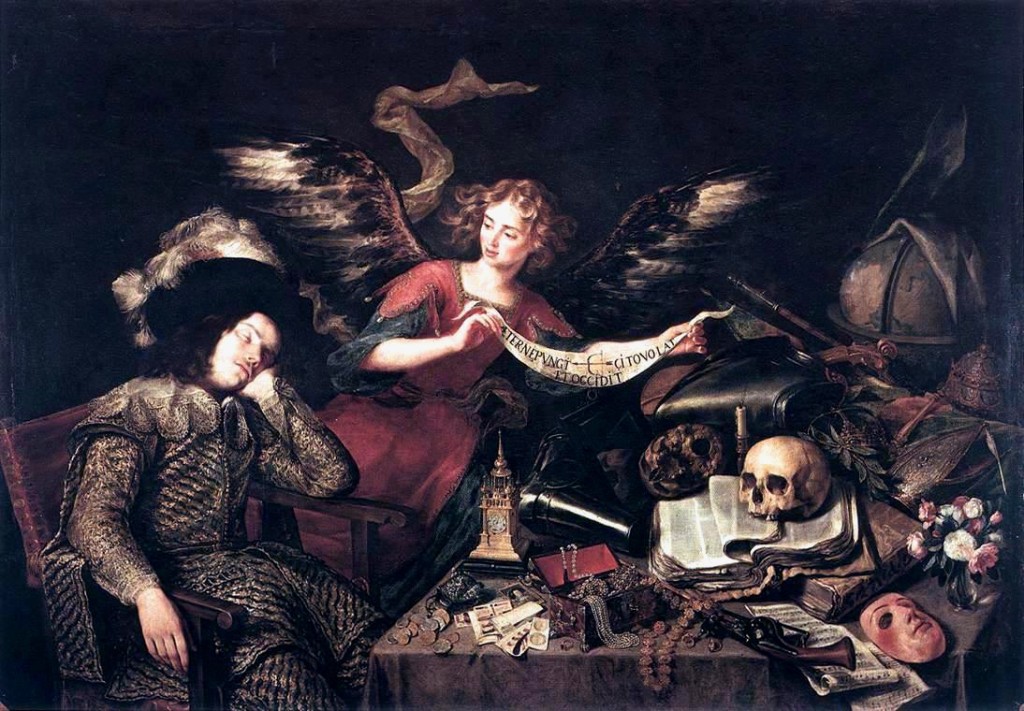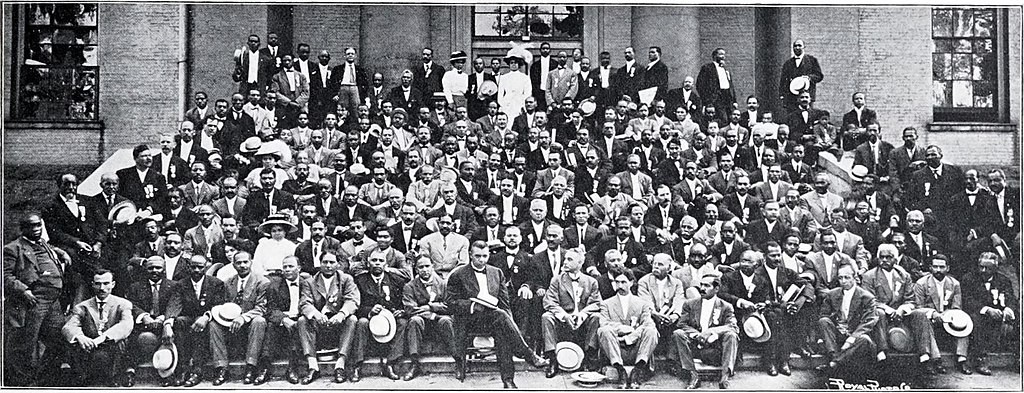Archive
Charles Hamilton Houston

The first general counsel of NAACP, Charles Hamilton Houston exposed the hollowness of the “separate but equal” doctrine and paved the way for the Supreme Court ruling outlawing school segregation. The legal brilliance used to undercut the “separate but equal” principle and champion other civil rights cases earned Houston the moniker “The Man Who Killed […]
Charles Hamilton Houston (HPS Magazine)
The Bader’s Emancipation

“My mother told me to be a lady. And for her, that meant to be your own person, be independent.”
~ Ruth Bader Ginsburg (1440 Daily Digest)
7 Ways to Emancipate Yourself from Mental Slavery
“On August 1, Emancipation Day was celebrated throughout the Caribbean. This commemorates 1 August 1838 when full freedom was granted to all slaves in the British owned colonies. Between 1662 and 1807 Britain shipped 3.1 million Africans across the Atlantic Ocean in the Transatlantic Slave Trade. Africans were forcibly brought to the Caribbean and sold as slaves to work on plantations. Despite being held captive many slaves resisted their enslavement and refused to be broken.”
‘Although slavery is no longer tolerated, many of us are held captive by limitations placed on us by ourselves or others. My whole life I’ve been told “You can’t.”’
~ Reading: “7 Ways to Emancipate Yourself from Mental Slavery” by Brigette Hyacinth (linkedin.com)
A Mere “I Can” Beauty…

“The eyes of others our prisons; their thoughts our cages.”
~ Virginia Woolf (azquotes.com)
Video | Life as a Quest – The Antidote to a Wasted Existence [12m 54s]
Don Quixote…is an allegory of the life of every man who, unlike others…pursues an objective, ideal end that has taken possession of this thinking and willing; and then, of course, he stands out as an oddity in this world.
~ Arthur Schopenhauer
Related:
- Ikigai Is Power! | Thou Shalt Lovethyself
- How To Identify Your Personal (and Interpersonal) Mission | Nycework
- Academy of Ideas | YouTube Channel
- “Don Quixote” by Miguel de Cervantes Saavedra | Project Gutenberg
Black-Owned Banks by State (USA)

“Ever since the founding of the Bank of North America in 1781, banking has played a critical role in facilitating the American Dream. These institutions provide indispensable monetary services, ranging from accepting deposits to offering loans. Credit is king in the United States, and without high-quality financial institutions, countless Americans would struggle to acquire vehicles, housing, and other essential items.
“However, like pretty much all of the nation’s older institutions, banks have also played a significant part in America’s racist past. Racial discrimination in the banking industry and financial system has targeted African Americans, and challenges to ending discrimination persist today. Black-owned banks arose as an alternative to larger institutions, to provide greater access to banking services as well as an opportunity to support local communities.”
~ Reading: “Black-Owned Banks by State” by Ward Williams (Investopedia)
Quotes: “’Someday’ is a disease that will take your dreams to the grave with you.” ~ Timothy Ferriss

“’Someday’ is a disease that will take your dreams to the grave with you.”
~ Timothy Ferriss (clockify.me)
“Read Absolutely Everything,” by Any Means Necessary

“Read absolutely everything you get your hands on because you’ll never know where you’ll get an idea from.”
~ Malcolm X (azquotes.com)
Two Autobiographical Works by an Enslaved African-American
Thanks to staff and volunteers at Project Gutenberg, two autobiographical works by William Wells Brown have been preserved for reading on- and offline…
Title One: Narrative of William W. Brown, a Fugitive Slave
“A woman was also kept at the quarters to do the cooking for the field hands, who were summoned to their unrequited toil every morning at four o’clock, by the ringing of a bell, hung on a post near the house of the overseer. They were allowed half an hour to eat their breakfast, and get to the field. At half past four, a horn was blown by the overseer, which was the signal to commence work; and every one that was not on the spot at the time, had to receive ten lashes from the negro-whip, with which the overseer always went armed. The handle was about three feet long, with the butt-end filled with lead, and the lash six or seven feet in length, made of cowhide, with platted wire on the end of it. This whip was put in requisition very frequently and freely, and a small offence on the part of a slave furnished an occasion for its use.
“During the time that Mr. Cook was overseer, I was a house servant—a situation preferable to that of a field hand, as I was better fed, better clothed, and not obliged to rise at the ringing of the bell, but about half an hour after. I have often laid and heard the crack of the whip, and the screams of the slave.
“My mother was a field hand, and one morning was ten or fifteen minutes behind the others in getting into the field. As soon as she reached the spot where they were at work, the overseer commenced whipping her. She cried, “Oh! pray—Oh! pray—Oh! pray”—these are generally the words of slaves, when imploring mercy at the hands of their oppressors. I heard her voice, and knew it, and jumped out of my bunk, and went to the door. Though the field was some distance from the house, I could hear every crack of the whip, and every groan and cry of my poor mother. I remained at the door, not daring to venture any farther. The cold chills ran over me, and I wept aloud. After giving her ten lashes, the sound of the whip ceased, and I returned to my bed, and found no consolation but in my tears. It was not yet daylight.”
~ “Narrative of William W. Brown, a Fugitive Slave” by William Wells Brown
Title Two:: Three Years in Europe: Places I Have Seen and People I Have Met
“William Wells Brown was born at Lexington, in the state of Kentucky, as nearly as he can tell in the autumn of 1814. In the Southern States of America, the pedigree and age of a horse or a dog are carefully preserved, but no record is kept of the birth of a slave. All that Mr. Brown knows upon the subject is traditionally, that he was born “about corn-cutting time” of that year. His mother was a slave named Elizabeth, the property of Dr. Young, a physician. His father was George Higgins, a relative of his master.”
~ “Three Years in Europe: Places I Have Seen and People I Have Met” by William Wells Brown
Related:
- William Wells Brown | Wikipedia
Quote of the Week: “…we can start now, start slowly changing the world…” ~ Anne Frank

“How lovely to think that no one need wait a moment, we can start now, start slowly changing the world! How lovely that everyone, great and small, can make their contribution toward introducing justice straightaway… And you can always, always give something, even if it is only kindness!”
~ Anne Frank (azquotes.com)
Related:
- Who was Anne Frank? | annefrank.org
Quotes: “Be loved, be admired, be necessary; be somebody.” ~ Simone de Beauvoir

“Be loved, be admired, be necessary; be somebody.”
~ Simone de Beauvoir (azquotes.com)
Booker T. Washington, Founder, Educator, Adviser… (1856)

Somewhere in Hale’s Ford, Virginia, on April 5, 1856, in a “slave hut…”
Booker T. Washington – the future African-American educator, founder, and adviser to two Presidents of the United States – was born.
The sting of poverty made going to school challenging for Booker, who, at the age of nine, began working at a salt furnace where brine was turned into commercial-grade salt.
‘Booker seized any opportunity to learn to read and write and began what he called his “book knowledge” right in that salt-furnace. Since each salt-packer had to mark his barrels with a certain number, Booker learned to recognize the number put on his barrels: “18.”’
‘He did not yet know other figures, but he had cleverly found a method for beginning to decipher them. It was a compulsion. “I had an intense longing to learn to read,” he wrote. “I determined, when quite a small child, that if I accomplished nothing else in life, I would in some way get enough education to enable me to read common books and newspapers.”’¹
His zest for personal and community advancement led Booker T. Washington to these accomplishments:

- Beginning in 1881, as its first president, until his death in 1915, he helped develop the Tuskegee Normal and Industrial Institute from ‘”an institution with two small converted buildings, no equipment, and very little money,” to “100 well-equipped buildings, some 1,500 students, a faculty of nearly 200 teaching 38 trades and professions, and an endowment of approximately $2 million.”‘²
Over the years, Tuskegee Normal and Industrial cycled through name changes and is now Tuskegee University.
- On August 23, 1900, he founded the National Negro Business League (NNBL) in Boston, Massachusetts, the nation’s first and oldest business organization. The NNBL existed 12 years before the U.S. Chamber of Commerce, Inc., and was formally incorporated in 1901 in New York City.
While the organization is still in existence, it is now called the National Business League (NBL.)
- From 1901 to 1913, Booker T. advised U.S. Presidents Theodore Roosevelt and William Howard Taft.³
Related:
- Video || The George Washington Carver Story | The Henry Ford’s Innovation Nation [3m 31s]
- “An Autobiography, The Story of My Life and Work,” by Booker T. Washington
- Booker T. Washington (National Park Service)
- Booker T. Washington Delivers the 1895 Atlanta Compromise Speech
- National Negro Business League | Making Black America
- National Business League
- Tuskegee University
- The Past Is Never Past: Slave Labor in the West Virginia Salt Works
- “False Black Power” by Jason L. Riley
References:
- Booker T. Washington, Encyclopaedia Britannica
- Booker T. Washington, Theodore Roosevelt Center at Dickinson State University
- Booker T. Washington, Wikipedia
- National Negro Business League, Wikipedia
- The Past Is Never Past: Slave Labor in the West Virginia Salt Works, The Atlantic
- Tuskegee University
Footnotes:
- Bill of Rights Institute, “To Accomplish the Most Good: Booker T. Washington’s Education – Handout A: Narrative,”
- Editors of Encyclopaedia Britannica, “Booker T. Washington,”
- study.com, “Which president did Booker T. Washington advise?”
Quotes: “Life is like a 10-speed bicycle. Most of us have gears we never use.” ~ Charles M. Schulz

“Life is like a 10-speed bicycle. Most of us have gears we never use.”
~ Charles M. Schulz (1440 Daily Digest)